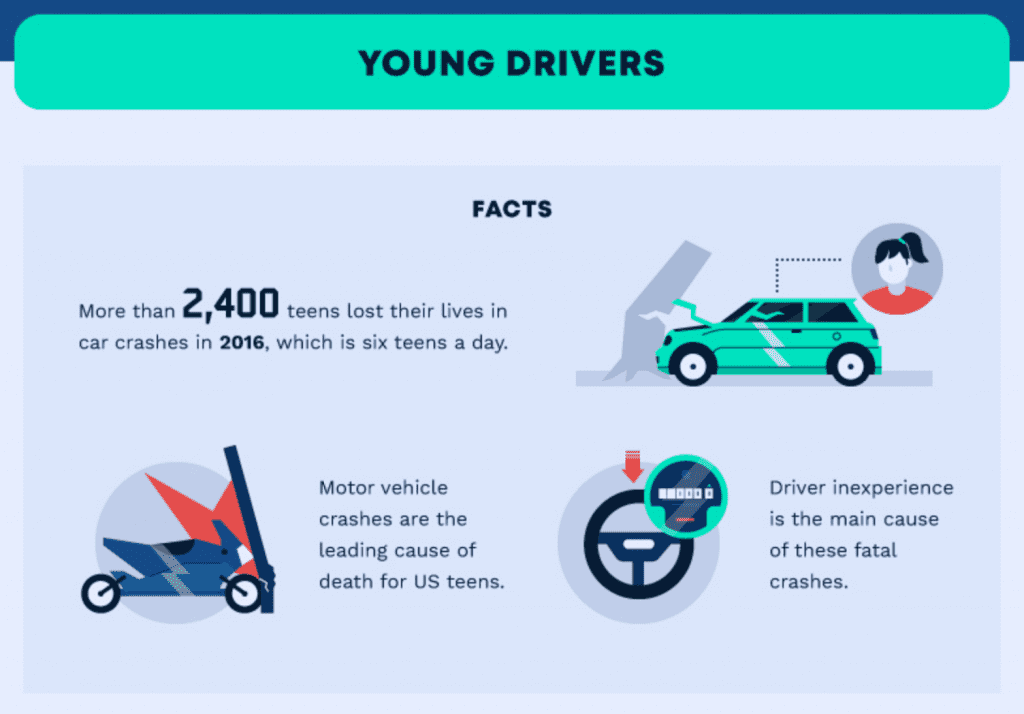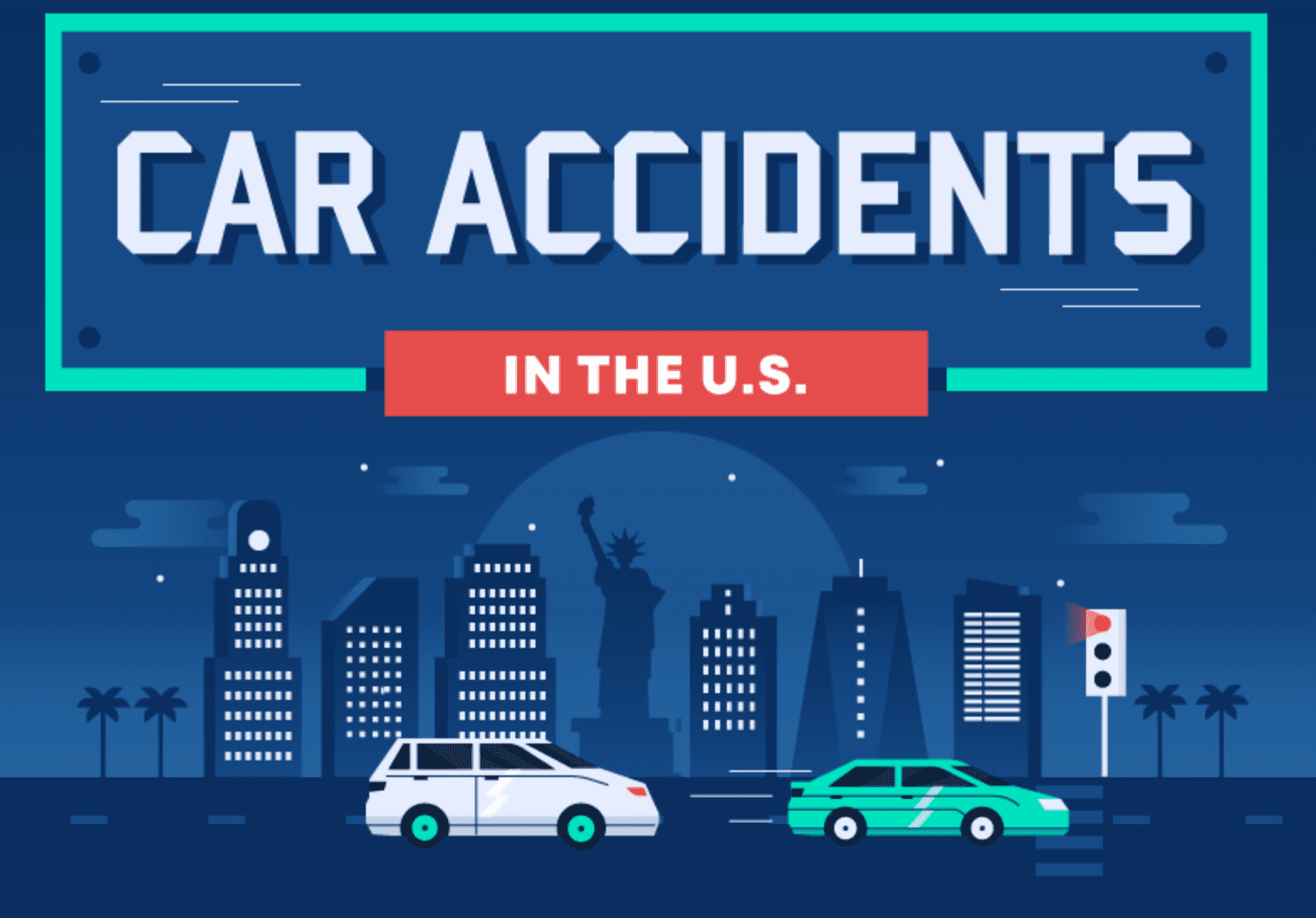In early 2018, Ethan Couch regained his freedom after serving a 720-day sentence. He was sent to jail in Fort Worth, Texas, for killing four persons while driving under the influence of alcohol. He spent the remainder of his adolescence behind bars. He rejoined society a week before his 21st birthday. Are teen drivers naturally dangerous?
Although his misdeed made headlines throughout the United States several years ago, the narrative of his story is old news. An infographic from Carsurance shows that, in 2016, over 2,400 American teens lost their lives in road accidents, which is equivalent to at least six teenage deaths every day.
Furthermore,12.2% of car crashes were found to be caused by teenagers. In comparison, older adults were only responsible for 7.5% of traffic-related accidents.
The statistics should not be surprising since young motorists naturally do not share the experience of more seasoned road users. What many people also consider as a given is the lack of maturity of teenagers.
After all, the part of the human brain that contributes to good decision-making—the prefrontal cortex—remains under construction until the age of 25.
So, are adolescent motorists destined to make risky choices like drunk driving because of biology? No, there is hope.
Immaturity: Not the Right Word?
Research reveals that the teenager’s weakness may also be a strength. According to a Harvard study, the adolescent brain gravitates toward a reward, which can aid in memory retention.
Moreover, an experiment using a driving simulation game done by researchers from the Finland’s University of Turku sheds light on the probable correlation between risky behavior and advanced brain maturation.
The test subjects that demonstrated high-risk behavior had more connective white matter tissue, which facilitates the flow of signals and communications within the brain, than that of their safer, more deliberate peers.
Further research into this topic is necessary, but the experiment sparks conversations about the link between risk-taking and white matter.
A Judgment Call
Teenagers are not the same, and the best judges of an adolescent’s character should be the parents. At the end of the day, it is the parents’ decision to help grant a teenage kid the driving privilege in the same way that they have the final say over which food to serve.
The prospect of losing a child in a car crash, especially when the kid in question is the driver, is not a pleasant thought, but all parents must strongly consider it.
It is the job of an adult to assess the readiness of an adolescent when it comes to driving. Parents ought to pay attention to determine whether their teenagers are mature and responsible enough to sit behind the wheel.
Perhaps we can all learn from auto insurers that put a premium on the reward system. Insurance companies believe that teenagers with good grades are more likely to become safer drivers, so they offer discounts to ace students.
There are no shortcuts or detours to being a good driver, and teenagers should learn this fact early through their parents. Click on the graphic below for a closer look at accident statistics.

In a country where an adolescent motorist can get a full license as early as 16 years old in some jurisdictions, the adults in a teenage driver’s life certainly play a crucial role of filling the void left by the underdeveloped prefrontal cortex.


Join the conversation!